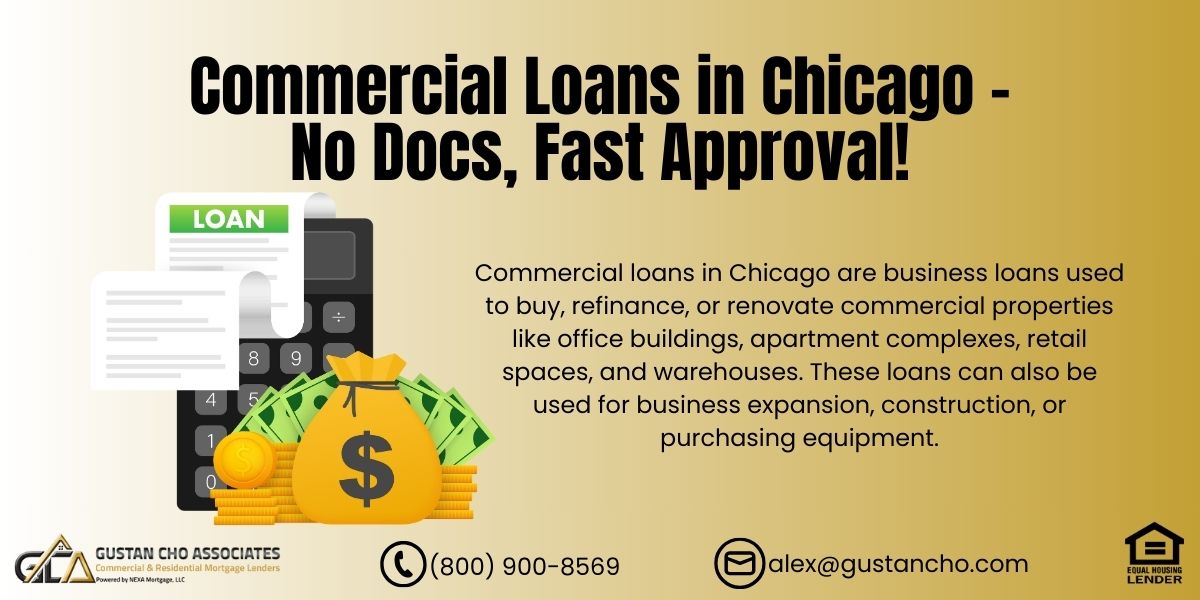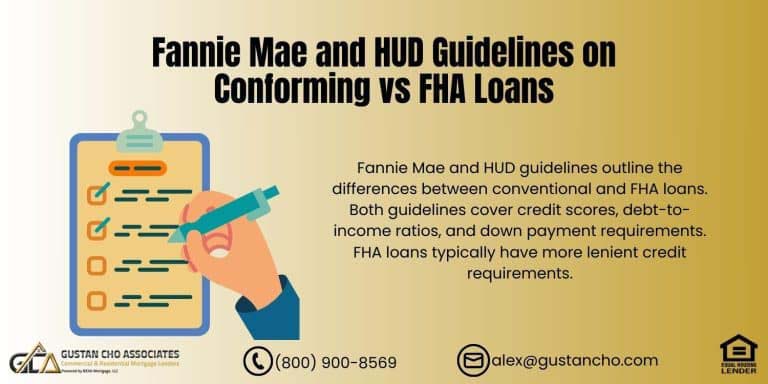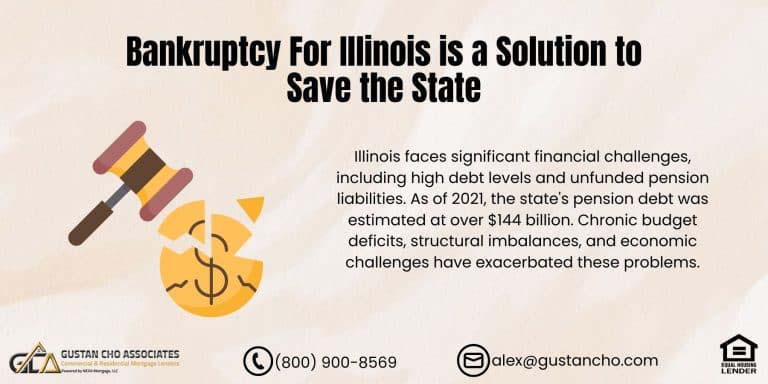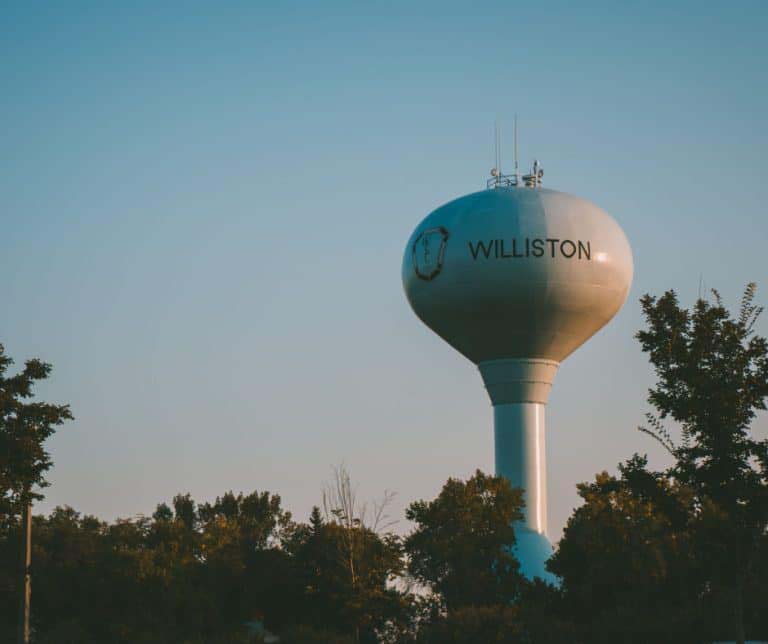Commercial Loans in Chicago: Get Approved Fast with Gustan Cho Associates
Are you looking for commercial loans in Chicago but unsure where to start? Finding the right commercial loan can be overwhelming whether you’re a real estate investor, business owner, or developer. At Gustan Cho Associates, we specialize in financing solutions that banks won’t approve. We make it easy for investors and business owners to secure funding—fast approvals, competitive rates, and no unnecessary lender overlays.
Why Choose Gustan Cho Associates for Commercial Loans in Chicago?
When you need money for your business, it can be hard to find the right loan. If you are looking for commercial loans in Chicago, we are here to help. Unlike regular banks, we have different types of loans that can fit your needs. Our team is known for helping people get loans even when others say no. Whether you want to buy an apartment building, rent office space, or grow your business, we have a loan plan for you. Let us help you find the money you need!
- No tax returns are required for many loans
- Fast approvals & closings in 2-3 weeks
- Low down payment options
- Access to private and alternative funding sources
Looking for a Commercial Loan in Chicago?
Apply And Get Pre-Approved TodayTypes of Commercial Loans in Chicago
We have different kinds of commercial loans in Chicago that fit your investment goals. Here are some of the most popular choices:
1. SBA Loans (Small Business Administration Loans)
SBA loans, which are referred to as Small Business Administration loans, are beneficial for small enterprises that require funding for crucial needs such as purchasing commercial properties, growing their operations, or acquiring new equipment. These loans can give you up to $5 million, making it easier to invest in your business.
One great feature is the low down payment, which can be as little as 10%. This means you don’t have to pay a huge amount upfront. Additionally, you can have long repayment terms, allowing you to repay the loan over 25 years. Plus, the interest rates are competitive, whether you choose fixed or variable rates. If you’re in Chicago looking for commercial loans, these SBA loans could be a smart choice for your business needs.
2. Hard Money Loans
Hard money loans are great for people who invest in real estate and need money quickly. If you’re looking for commercial loans in Chicago, these loans could be a good fit. Here are some reasons why:
- Fast closing (2-3 weeks)
- Great for fix-and-flip projects
- Higher loan-to-value (LTV) financing available
- No income documentation required
These features make hard money loans a fast and easy option for real estate deals in Chicago!
3. Bridge Loans
Bridge loans are short-term money that can help people buy a property when they need quick cash before getting a more long-lasting loan. These loans are great because you can get cash fast and don’t have to worry about extra fees if you pay it back early. They are often used to buy foreclosures, empty buildings, or houses that need work. If you’re looking for options in the city, many commercial loans in Chicago can help you with these properties.
4. Apartment Building & Multi-Family Loans
Investing in multi-family properties can help you build wealth, and we make it easier with our commercial loans Chicago. We offer loans for apartment buildings, with amounts going up to $50 million. You can enjoy low down payments and flexible terms that fit your needs. Plus, on some of our programs, there are no requirements for a Debt Service Coverage Ratio (DSCR), which makes it even simpler to get started!
5. No-Doc Fix & Flip Loans
If you’re a real estate investor looking to buy, renovate, and sell properties quickly, our No-Doc Fix & Flip Loans are the perfect option.
- No tax returns or W-2s needed
- Up to 90% of purchase price & 100% rehab costs covered
- Funding within 2-3 weeks
6. Asset-Based Lending
For investors who own multiple properties, we offer Asset-Based Loans that focus on the value of your assets rather than your income.
- Approval based on property value, not personal income
- No personal guarantee required
- Perfect for investors with multiple properties
7. Construction Loans
Construction loans are short-term commercial loans: These are given by a commercial lender to a commercial mortgage loan borrower who needs to develop commercial properties such as apartment buildings, homes, strip malls, office space, warehouses, and storage units.
Construction loans are also for property owners who need to remodel and renovate their existing properties. The property, land, and other tangible assets are used as collateral to secure commercial financing.
In commercial loans Chicago by selling the property after the construction phase. Or when the property owner gets permanent financing when the construction project is finalized.
Need a Loan for Your Business or Investment Property?
Talk to a Chicago Loan Expert Today And Get recommendationsHow to Get Approved for a Commercial Loan in Chicago
Getting approved for commercial loans in Chicago is easier with the right lender. Here’s what you need to know to qualify:
1. Know Your Credit Score
- Most commercial loans require a minimum credit score of 600-650, but we offer no-credit-score-required options.
2. Have a Solid Down Payment
- Expect to put down 20% to 35%, but we offer low down payment loans starting at 10% for qualified borrowers.
3. Show Proof of Business or Investment Experience
- Some lenders require borrowers to have experience managing similar properties. If you’re a first-time investor, we can help you find the best financing option.
4. Property Cash Flow Matters
- Lenders may look at the Debt Service Coverage Ratio (DSCR) for multi-family and rental properties. Some of our loan programs do not require DSCR calculations.
5. Be Ready with Documentation
While many of our alternative loan programs require little to no paperwork, having financials, rent rolls, and property details ready can speed up the process.
Chicago Commercial Real Estate Market Trends
The commercial real estate sector in Chicago is expanding rapidly, and many individuals are interested in purchasing multi-family residences, office properties, and mixed-use developments.
This rising demand is great news for anyone looking for commercial loans in Chicago, as more financing options are available. With so many projects happening, it’s important to keep an eye on these trends to see how they could affect the market in the future.
Rising rental income: Investors see increased rental yields in key Chicago neighborhoods.
Flexible financing is more important than ever: Traditional banks tighten lending standards, making alternative loans more attractive.
Interest rates are stabilizing: After fluctuations in 2023, commercial loan rates in 2025 are becoming more predictable.
Why Investors Choose Chicago for Commercial Real Estate
Investors are drawn to Chicago for commercial real estate because it has a strong economy and a lot of job growth. The city is home to many big companies. There is a high need for places for people to live, especially in multi-family units. As the tech and startup scene grows, more office spaces are also in demand. With so many opportunities, it’s no wonder people look for commercial loans in Chicago to help them invest in this vibrant market.
How to Apply for Commercial Loans in Chicago
Getting started is simple. At Gustan Cho Associates, we simplify the process with fast approvals and expert guidance.
- Schedule a Free Consultation – Call us at 800-900-8569 or apply online.
- Get Pre-Qualified – We’ll review your investment goals and financing options.
- Loan Approval & Funding – Once approved, we close most loans in 2-3 weeks.
- Call us now at (800) 900-8569 to get started with your commercial loan in Chicago!
Final Thoughts on Commercial Loans in Chicago
Finding the right commercial loan in Chicago doesn’t have to be complicated. With Gustan Cho Associates, you get expert guidance, fast funding, and flexible loan programs that fit your needs. Whether you’re buying an apartment building, office space, or investment property, we make financing simple and stress-free.
Bridge Loans, SBA, or Private Lending?
Apply Now And Compare Chicago’s Top Commercial Loan SolutionsFrequently Asked Questions About Commercial Loans in Chicago:
Q: What are Commercial Loans in Chicago?
A: Commercial loans in Chicago are business loans used to buy, refinance, or renovate commercial properties like office buildings, apartment complexes, retail spaces, and warehouses. These loans can also be used for business expansion, construction, or purchasing equipment.
Q: Who Qualifies for Commercial Loans in Chicago?
A: Most commercial loans require a credit score of at least 600, a down payment of 10-35%, and proof of business or investment experience. However, Gustan Cho Associates offers no-credit-score and low-doc loan options for qualified borrowers.
Q: How Much Money Can I Borrow with a Commercial Loan in Chicago?
A: The loan amount depends on the type of loan and the property. SBA loans can reach $5 million, while apartment building loans can reach $50 million or more. Hard money and bridge loans typically cover 70-90% of the property value.
Q: What Types of Commercial Loans are Available in Chicago?
A: We provide a range of commercial loan options, which include:
- SBA loans for small businesses
- Hard money loans for quick real estate investments
- Bridge loans for short-term funding
- Apartment building & multi-family loans
- No-doc fix & flip loans for investors
- Construction loans for new development
Q: Do I Need Perfect Credit to Get a Commercial Loan in Chicago?
A: No! Many of our alternative commercial loans do not require a high credit score. Hard money, no-doc, and asset-based loans focus more on property value and potential rental income than on your personal credit history.
Q: How Fast Can I Get a Commercial Loan in Chicago?
A: Traditional bank loans can take months, but at Gustan Cho Associates, we can approve and fund commercial loans in Chicago within 2-3 weeks—sometimes even faster for hard money or bridge loans!
Q: What are the Interest Rates for Commercial Loans in Chicago?
A: Interest rates vary based on the kind of loan. SBA loans typically offer low fixed interest rates. In contrast, hard money loans come with higher rates (approximately 9-12%) because of quicker funding and less stringent requirements. Bridge loans and apartment loans usually present competitive rates influenced by market conditions.
Q: Can I Get a Commercial Loan with No Tax Returns or Income Verification?
A: Absolutely! We provide no-documentation and bank statement loans that don’t require tax returns or proof of income. These options are ideal for self-employed individuals, investors, and business proprietors.
Q: What is the Down Payment Requirement for Commercial Loans in Chicago?
A: The required down payments vary between 10% and 35%, based on the type of loan. For SBA loans, a down payment can be as low as 10%, whereas hard money loans generally necessitate a down payment of 20-30%. Additionally, we provide full financing for renovation expenses on fix-and-flip projects.
Q: How do I Apply for a Commercial Loan in Chicago?
A: Applying is simple! At Gustan Cho Associates, we make the process easy:
- Call us at (800) 900-8569 or apply online.
- Get pre-qualified in minutes.
- Submit property details and funding needs.
- Receive fast approval & close in 2-3 weeks!
This blog about “Commercial Loans in Chicago – No Docs, Fast Approval!” was updated on March 3rd, 2025.











Am looking to get pre-approved in Florida
I am 18 months into Chapter 13 repayment and am looking for a cash out refinance to pay off my bankruptcy. The $310,000 would refinance the existing mortgage of $240,000 and pay off the remaining $50,800 of my bankruptcy.
How many properties can I buy before I’m considered as commercial
As many as you like with non-QM loans